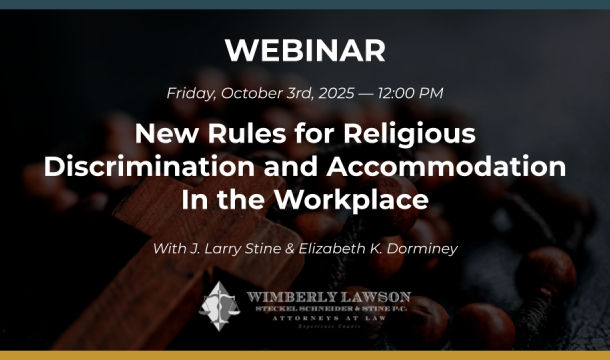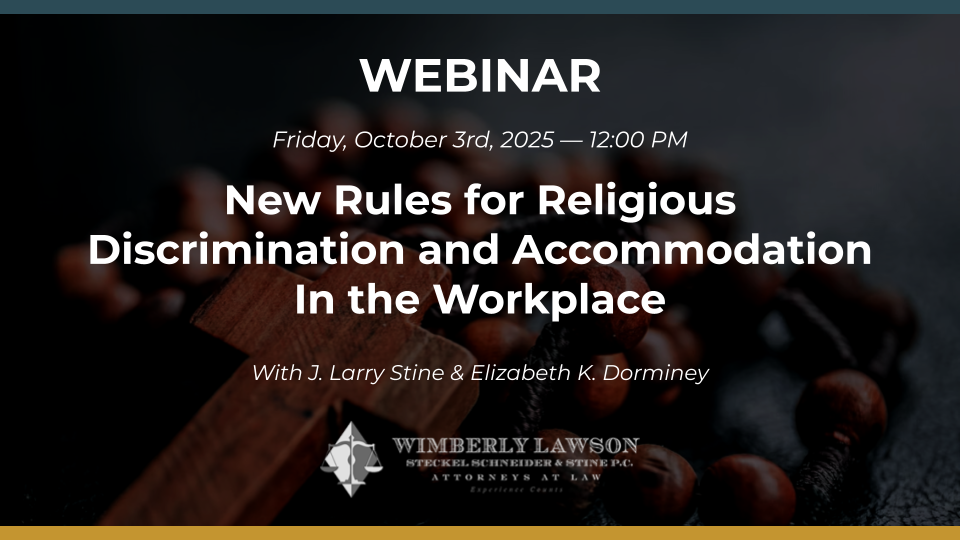Is Worker Misclassification Tax Fraud? Probably Not.
One of most common types of wage-hour litigation is the "misclassification lawsuit," triggered by an employer's misclassification of a worker as an "independent contractor" ("I.C.") rather than as an "employee." One urban myth among employers is believing that the choice of whether a person is an "I.C." or an "employee" is a subjective issue decided solely by the employer. This is absolutely false, and errors can be expensive.
Some employers deliberately misclassify workers as "I.C.s" because they think they can avoid paying employment taxes (and tax withholding), workers' compensation premiums, overtime wages, and/or employee benefits, such as health insurance. This type of misclassification can lead to lawsuits as workers who should have been classified as "employees" sue to recover wages and benefits.
There are several legal tests, under different statutes, for determining if someone is an "employee" or an "I.C.". Most of them involve the degree of control the employer exercises over the work to be done. For example, the person you hire to paint your house who arrives with his own buckets and ladders is likely a bona fide independent contractor: but if the contractor hires a painter and tells him when, where, and how to paint, the contractor probably has an employee.
An interesting twist is to add a claim for tax fraud under 26 U.S.C. § 7434. This statute allows individuals who are victims of tax fraud to sue the individual (or company), that filed a fraudulent tax return. The argument in a misclassification lawsuit is that, by filing an IRS Form 1099 (reporting income paid to an independent contractor), the company committed fraud because such income should have been reported via a Form W-2 (the proper form for reporting income paid to an employee). The statute allows an aggrieved person to recover the greater of $5,000 per fraudulent return or their actual damages.
It's a nifty idea, but so far, it's not working. The very few written court opinions to date have ruled that 26 U.S.C. § 7434 does not apply to simple misclassification situations. Rather, the district courts are leaning toward an interpretation of the statute that requires actual fraudulent intent, such as deliberately under-reporting income. Companies that, intentionally or inadvertently, misclassify workers as "I.C.s" shouldn't get too excited by these rulings, so long as the worker's income is correctly reported via Form 1099. The workers can still recover under a wide variety of statutes (especially the Fair Labor Standards Act), and misclassification can trigger other tax liabilities, but so far no court has handed down penalties under this statute for errors arising from misclassification.
Take-home point: Properly classifying workers as "employees" or "independent contractors" is an objective analysis, not a simple choice to be made by the employer. Misclassifying a worker (whether deliberately or inadvertently) will expose the employer to potential liability for back wages, liquidated damages, lost employee benefits, unpaid taxes and employment-related contributions, and/or plaintiff's attorney's fees and costs, but is very unlikely to lead to penalties under 26 U.S.C. § 7434.
Chris Adams is a paralegal and a member of the Wage and Hour Practice Group at Wimberly, Lawson, Steckel, Schneider & Stine, P.C.
Related Content
Get Email Updates
Recent Content

Trump Nominates Appointments to NLRB and EEOC but Policy Changes Likely to Be Delayed

DOL Launches Self-Audit Programs Designed to Help Employers Improve Compliance

DOL Must Release EEO-1 Reports to the Public under Open Records Laws

Current Advice on Active-Shooter Situations

New Policy for Federal Workers and Religious Expressions

